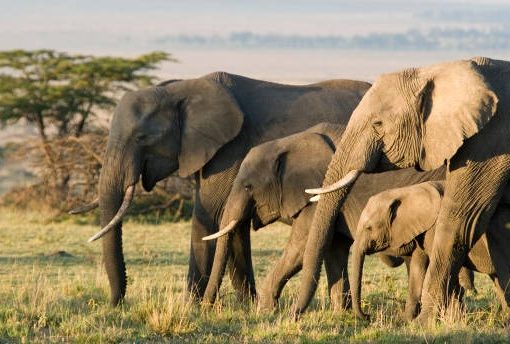The population of bees and other pollinators has significantly decreased as a result of land degradation, widespread use of pesticides and atmospheric pollution thereby threatening food production in the Sh 12 billion sector.
Bees are presently facing challenges including new diseases and pests hence their survival and development is also threatened by climate change.
Speaking on Monday during celebrations to mark the World Bees Day, the Principal Secretary in the Ministry of Agriculture, Livestock, Fisheries and Irrigation, Harry Kimutai said the main challenge facing honey production are poor marketing infrastructure, inadequate information and organization and unethical practices.
The theme for the fete is ‘A call to conserve the environment for Bees as key driver in agenda four on food and nutritional security.’
To enhance market access, the Ministry, in collaboration with stakeholders, is in the process of developing a National Residue Monitoring Plan for honey to enhance traceability and compliance to the European Union export market requirements, Kimutai, who is incharge of State Department of Livestock, said.
“We are in the process of further developing a national Apiculture Policy through a sessional paper that will be expedited and facilitated through the remaining processes so that it can take force as soon as possible,” the PS added.
Plans, he noted, are underway to upgrade infrastructure at the National Beekeeping Institute and put all relevant measures in place for the institute to start admitting students for certificate and diploma courses in apiculture.
He said the government is also in the process of developing the National Bee Industry Regulations that are currently being subjected to intense County consultations in different county clusters.
The regulations will provide a framework for coordination and guidelines in the bee industry to enhance sustainable growth and boost the industry’s contribution to people’s livelihoods.
According to the 2017 verified government data, the PS said that the beekeeping industry contributed Sh12 billion to the agricultural sector Gross Domestic Product (GDP) placing the industry at position five below the Beef, Dairy, Poultry and Goat value chains respectively.
“There is therefore need to enhance investment in this important industry to boost production and strengthen coordination so as to reposition it for growth”, he said.
Kimutai said that success in the industry will however depend, to a large extent, on the ability of all stakeholders to maintain high quality standards that meet local and international market requirements
The Food and Agriculture Organization (FAO) Programme coordinator Robert Allport urged Kenyans to do more to protect bees and other pollinators in order to maintain a steady food supply.
“Without bees, we would not be able to produce enough food for the world population, thus the protection of pollinators needs to be upheld and each one of us has an individual responsibility towards protecting these pollinators”, he said.
He explained that 10 percent of the world bees are facing extinction due to mono-cropping and reiterated the need for sustainable agriculture to help reduce the risks.
“More than 75 percent of the world’s food crops rely to some extent on pollination for yield and quality thus pollinators, such as bees, birds and butterflies help plants fertilize. The absence of bees and other pollinators would wipe out crops that rely on pollination,” Allport said.
Nairobi County Executive for Water Food, Agriculture and Forestry, Larry Wambua said that having innovative science and research plays a vital role in safeguarding Kenya’s food supply.
Wambua who was speaking on behalf of the Nairobi Governor Mike Sonko noted that the county government has made efforts to enhance environmental conservation through afforestation and the Nairobi Beautification Programme.
This together with sustainable agriculture practices, and in particular afforestation, can help protect bees by reducing exposure to pesticides and helping to diversify the agricultural landscape, Wambua said.
The annual honey production in Kenya is 25,000 metric tonnes against a consumption level of 38,000 tonnes.
Under the Big Four Agenda, the Ministry is undertaking interventions to enhance honey production and increase bee populations by establishing centers of excellence in beekeeping as well as bee reserve areas at different sites across the country to bridge this gap.
So far, four regional bee multiplication areas in Livestock Farms have been developed in Tharaka, Baringo, Kwale, Migori and Nakuru Counties and the initiative will be expanded to cover more Counties in subsequent financial years with the aim of achieving a national coverage by the year 2022.
By Gloria Chebet and Philly Opere




